The infamous Senior Thesis is a source of stress and anxiety for many students. Although there are information sessions galore for juniors, I didn’t feel like I actually understood the process until I started it. This summer, I began my thesis research process by traveling to Norway to collect observational data on the country’s prison system.
How to Beat the Panic of Independent Work
Last fall, in a cubicle on the B-floor of Firestone, you might have seen me scrolling through my unfinished JP. It would have looked unremarkable. I had been working on my JP in the same cubicle for weeks. Except this time, my JP was due to my department in two hours and I was realizing I had about 25 pages of footnotes to complete. I was panicking: crying and shaking while typing faster than I’ve ever typed before.
Luckily, I was able to complete the citations and submit my JP with three minutes to spare! But it took me the rest of the night to recover from the experience (and, to be honest, I still get a rush of anxiety every time I think about it). I promised myself I would never allow myself to end up in the same situation again.

Whether it’s a final paper, a JP, or a thesis, here are some tools I’ve been using to help me beat the panic of independent work:
JP Adviser Meetings: Confronting Your Writing
I meet with my JP adviser every other Monday morning. No matter how hard I try to beat procrastination, the weekend before each meeting is always an anxious scramble to complete a draft. On Sunday night, I worry that I’m unforgivably behind schedule, that my topic was a bad choice, that my writing is incoherent.
From conversations with my friends, I’ve realized that wanting to avoid our advisers is totally normal. It can be scary to share our work—especially when it’s unfinished, and especially when the reader will eventually be grading it. But as I’ve learned over the past semester, though it can be terrifying, meeting with my adviser has only helped and reassured me in the research and writing process.
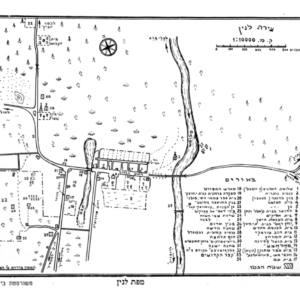
When I feel anxious the Sunday before an adviser meeting, I’m not actually worried about what my adviser will think. I’m worried about having to confront my own work. If I send only a two-page draft, I have to admit to myself that I’m behind schedule. If my argument isn’t fully baked, I have to admit that I haven’t yet figured out how to approach my topic. If my writing is confusing, I have to admit that it needs a lot more editing.
Admitting mistakes or weaknesses is always hard. It feels so much easier to pretend they don’t exist—to convince yourself that you’ll be on schedule soon, that there are no holes in your argument, that your writing needs no editing. However, as difficult as it may be, confronting these questions regularly not only improves your work, but prevents a flood of buried anxiety at the end of the project.
Continue reading JP Adviser Meetings: Confronting Your Writing
So Many Sources: How to Manage the Seemingly Unmanageable
Last week, a librarian at the University of Cape Town emailed me some scanned items from their archives which I requested for my Junior Paper research. I’ve looked through them, and I can see that they will be quite useful for my work.
While I am glad that I have access to these sources now, they also add to a problem I had before I received them: in the research work I have been doing, I have what seems like too many materials to work with. During my time over spring break at the New York Public Library and Center for Jewish History, I amassed literally hundreds of newspaper and journal articles as primary sources.
At first, I was unsure of what to do with all of them. It simply seemed an overwhelming task to sift through them to figure out what was needed for my work (this is where having a clear yet flexible research question comes in handy; see my post here on that). A similar thing had happened to me this summer when I was working on a research project likewise involving hundreds of newspaper articles, and I do not think I dealt with it as well as I could have then. So, reflecting on these mistakes, I worked out some strategies to make things more manageable this time around. I hope these to be helpful for any student researcher who feels like they’re buried under a mound of potential sources:
Continue reading So Many Sources: How to Manage the Seemingly Unmanageable
The Junior Paper: A Halftime Report
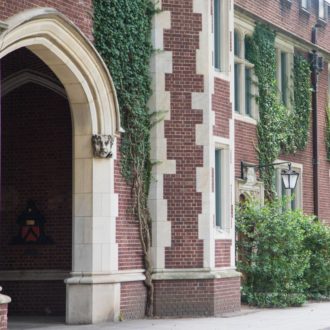
My friends and fellow students, springtime has sprung forth from the recently-frozen New Jersey soil. Spring Break is in the rear-view mirror, and we march toward Dean’s Date, finals, and summer at a steady clip. But another set of deadlines draws even nearer, deadlines whose immediacy can be seen on the tired faces of many upper-class students. Yes, friends, I’m talking about independent work, JPs and theses, the academic tulips of the Princeton spring semester. Continue reading The Junior Paper: A Halftime Report
Stumped for Sources at Firestone? No Worries!
At Princeton, we are lucky to have access to an incredible collection of research resources. Between our libraries’ collections on campus, online databases, ReCap storage, and Borrow Direct, almost all your research needs are right at your fingertips. And, for most of the papers you will write while here, this is probably the case. But, especially with independent work, you may need sources so niche or rare that Princeton just can’t provide them. I have found myself in this situation this semester, as I write my junior paper for my HIS 400 seminar. Here, I’ll share my experience navigating the search for niche sources, with tips for getting creative when searching for material at Firestone and beyond.
My paper focuses on the political thought of Henry Katzew (a Jewish South African journalist and writer), situating it in relation to other Jewish South African responses to apartheid, Zionism, and a diplomatic crisis which occurred between the Israeli and South African governments in 1961. Given how specific my topic has become, it was difficult finding sources, especially primary sources, at Princeton right off the bat. Still, with some time to think and the help of quite a few librarians (more on that below— they are truly research superheroes), I have managed to find the sources I need to complete the work. Continue reading Stumped for Sources at Firestone? No Worries!
Professorship and Mentorship: An Interview With Professor Bernadette Pérez
This winter, for our seasonal series entitled “Professorship and Mentorship,” PCURs interview a professor from their home department. In these interviews, professors shed light on the role that mentorship has played in their academic trajectory, including their previous experiences as undergraduate and graduate students as well as their current involvement with mentorship as independent work advisers for current Princeton undergraduates. Here, Rafi shares his interview.
~~~~~
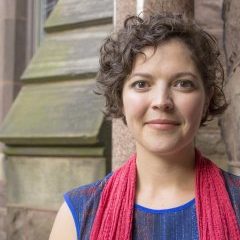
I met Professor Pérez last semester as a student in her course on Commodity Histories. Throughout the semester, I was inspired by her commitment to interdisciplinary research and her focus on subjugated histories. I was excited to hear about her personal research journey and any advice she might have for a confused undergrad like me.
Continue reading Professorship and Mentorship: An Interview With Professor Bernadette Pérez
Macs, Tablets, Photoshop and More: Exploring the Digital Learning Lab
Have you ever wanted to learn Photoshop or make a 3D model? Maybe you’re trying to edit a video or record a podcast?
This year, I have become a frequent visitor to the Digital Learning Lab (DLL), an interdisciplinary, digital creative space located in Lewis Library. I first visited the DLL in the fall in order to borrow a drawing tablet to make a digital illustration for an issue of Nassau Weekly. Since my first introduction to the DLL, I have continued to learn more about all that is offered there, and I had to share!
Continue reading Macs, Tablets, Photoshop and More: Exploring the Digital Learning Lab
De-Mystifying the Black Box Part 2: Research Abroad and Narrowing Everything Down
I went to Paris! Not just for fun—although it’s a dope city—but to get some thesis research done to narrow down a topic. In the first part of this series, I mentioned how I submitted an application for funding to research advertisements in museum archives and libraries in Paris. My goal was to narrow down the initial research question I had at the very beginning of my research process: how Public Service Announcements (PSAs) subvert the capitalist practices within traditional commercial advertising. My goal was to see the advertisements that inspired the French theorists I’ll be drawing from in my thesis. But, alas, there was one problem—when faced with an entire archive of advertisements, where do I even begin??
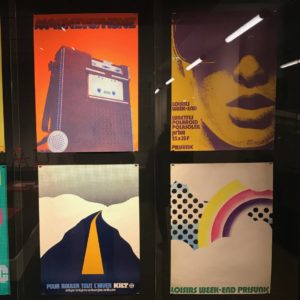
I spent most of my time at the Bibliothèque Forney, a library specializing in design and the decorative arts. I emailed ahead of time to speak with one of the librarians, who wanted to get a sense of my argument and which advertisements he could direct me into researching according to my response. After explaining my general thesis topic and the research I had done in my previous two JPs (pro-tip: explaining a thesis topic in a foreign language is a good marker for how well you understand it—or rather how much you don’t), he responded bluntly: “You really need to narrow this down.” My face fell. That’s exactly what I was trying to do, the very reason I was in that library. I didn’t have a corpus of ads, which is what I was in search for in Paris. I had kind of hoped to look at a vast layout of ads and just be naturally drawn to an era, a medium, a theme, or product, but I quickly realized it was far too unrealistic to be able to survey three hundred years of French advertisements and just hope that a few of them would speak to me so I could write eighty pages about them. The librarian asked me how much time I had to write my thesis, suggesting one to two years, and I chuckled, slightly panicked, and said “six months.”
Continue reading De-Mystifying the Black Box Part 2: Research Abroad and Narrowing Everything Down
Professorship and Mentorship: An Interview with Molecular Biology Professor Zemer Gitai
This winter, for our seasonal series entitled “Professorship and Mentorship,” PCURs interview a professor from their home department. In these interviews, professors shed light on the role that mentorship has played in their academic trajectory, including their previous experiences as undergraduate and graduate students as well as their current involvement with mentorship as independent work advisers for current Princeton undergraduates. Here, Nanako shares her interview.
~~~~~
As one can see from the many PCUR posts on Junior Papers
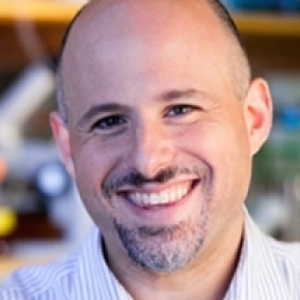
and Senior Theses, independent work is a huge part of the junior and senior experience here at Princeton. However, everyone has different views on why this process is important, and different departments have different requirements. For this Winter Seasonal Series, I decided to interview Professor Gitai, who I met when I took MOL214: Introduction to Molecular and Cellular Biology in the fall of my first year at Princeton. Read on to learn more about the thesis writing process for concentrators in molecular biology, and how to make sure you get the most out of this process!

